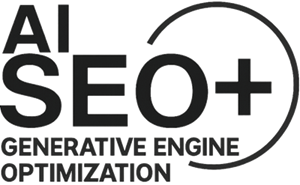How AI is Changing Influencer Marketing on Social Platforms

Whether you’re a brand, agency, or influencer, understanding how AI is integrated into influencer marketing is essential for growth, efficiency, and competitive advantage.
Why Influencer Marketing Needed AI
Traditional influencer marketing relied heavily on manual research, spreadsheets, gut instinct, and time-consuming outreach. Problems like fake followers, low engagement rates, and ROI tracking made it difficult for brands to scale campaigns efficiently.
Enter AI: With machine learning, natural language processing (NLP), and computer vision, AI now automates, enhances, and personalizes every step of influencer collaboration.
1. AI-Powered Influencer Discovery
Gone are the days of searching Instagram manually for influencers in your niche. AI tools can now scan millions of profiles in seconds, based on:
- Follower authenticity
- Niche relevance and content category
- Past campaign performance
- Audience location, interests, and demographics
Top AI Influencer Discovery Platforms:
- Upfluence
- Heepsy
- HypeAuditor
- Influencity
Example: A skincare brand in Mumbai can use AI filters to find nano-influencers with 5K–20K genuine followers in India, focused on skincare and organic beauty routines, with an average engagement rate above 3%.
2. Fraud Detection and Audience Validation
AI tools can now detect fake followers, bots, and suspicious activity by analyzing engagement patterns, follower spikes, and comment authenticity.
What AI Checks:
- Follower origin and quality
- Bot-like engagement (e.g., repetitive emojis, irrelevant comments)
- Sudden growth patterns that indicate paid followers
- Real vs. inflated reach stats
This protects brands from wasting budget on ineffective partnerships and ensures authenticity in influencer selection.
3. Campaign Matching and Predictive Performance
AI doesn’t just find influencers — it recommends the best matches for your specific campaign goals.
How AI Helps:
- Analyzes past brand-influencer fits and audience overlaps
- Predicts expected reach, engagement, and ROI
- Identifies content creators with a high “brand match score”
Example: If you’re launching a new fitness app, AI might suggest a tech-savvy fitness micro-influencer on YouTube over an Instagram macro creator, based on predicted downloads and conversion data.
4. AI-Generated Briefs and Collaboration Workflows
Using NLP, AI tools can now auto-generate influencer briefs, message templates, and posting guidelines based on brand tone, platform, and objective.
Use Cases:
- Generate a brief for a sponsored reel on Instagram
- Suggest content topics based on past performance
- Automate approval workflows between influencer, agency, and brand
This saves hours of manual coordination and reduces errors during collaboration.
5. Real-Time Performance Tracking with AI
AI-based dashboards give live campaign performance insights across platforms like Instagram, YouTube, TikTok, and LinkedIn.
What It Tracks:
- Engagement by post and creator
- CTR, saves, shares, and conversions
- Audience sentiment and keyword analysis from comments
Pro Tip: Some AI tools even offer campaign-level ROI predictions mid-way so you can tweak your strategy in real time.
6. AI-Powered Content Analysis & Optimization
Want to know why one post outperformed another? AI uses image recognition, text analysis, and platform benchmarks to score influencer content.
AI Looks At:
- Lighting, faces, and background in visuals
- Length, tone, and sentiment in captions
- Use of CTA words, trending hashtags, and geo-tags
This helps brands and influencers refine their approach for better future performance.
7. Virtual Influencers and AI-Generated Creators
AI isn’t just supporting human influencers — it’s creating virtual ones. In 2025–26, AI-generated influencers like Lu do Magalu, Lil Miquela, and Noonoouri are collaborating with brands across fashion, gaming, and tech.
Benefits:
- Zero risk of human controversy or schedule delays
- Scalable content in multiple formats and languages
- Fully brand-controlled personas
While some audiences still prefer real faces, virtual influencers are gaining traction, especially with Gen Z and gaming audiences.
8. Dynamic Influencer Payments Based on AI Performance
Rather than fixed fees, many brands now use AI-based pricing models where influencers are paid based on:
- Actual reach delivered
- Engagement quality
- Referral sales tracked by AI
This creates fairness and transparency for both creators and businesses.
Real Example: AI-Driven Influencer Campaign
Brand: D2C Organic Skincare Brand – India
Tools Used: HypeAuditor + Jasper + Google Vision API
Strategy:
- Used AI to identify 10 nano-influencers in Tier-2 cities
- AI-generated creative briefs and post captions using ChatGPT
- Performance tracked using link tagging and AI dashboards
Results:
- 32% lower influencer cost vs macro partnerships
- More local sales and Google searches in targeted cities
- Higher engagement from regional audiences
Challenges of AI in Influencer Marketing
- AI can’t detect every cultural nuance or local emotion
- Over-automation may reduce creativity or authenticity
- Some AI suggestions may miss human judgment calls
Solution: Always blend AI suggestions with human review for best results.
How to Get Started with AI in Influencer Marketing
- Use discovery tools like Upfluence, AspireIQ, or Modash
- Test ChatGPT to generate briefs, outreach messages, or captions
- Track campaigns using platforms with AI analytics (e.g., Later, Sprout)
- Train your team to use AI ethically and responsibly
What’s Next in 2026?
Expect influencer marketing to become even smarter:
- AI matchmaking engines between brands and creators
- AI content co-pilots for influencers themselves
- Performance-based smart contracts with blockchain tracking
Influencer marketing will be less about guesswork — and more about precision, personalization, and measurable value.
AI Is the Future Wingman of Influencer Marketing
AI is not replacing influencers — it’s amplifying their power. By streamlining discovery, ensuring authenticity, generating smarter content, and tracking ROI, AI is making influencer marketing more intelligent and effective than ever before.
In 2025–26, the brands and creators who leverage AI will not just trend — they’ll lead.
